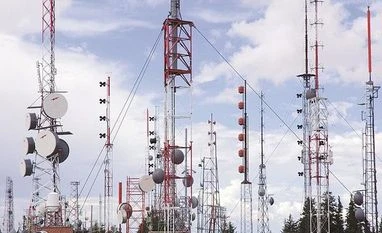According to lawyers who have worked on the 2G cases, some companies such as Loop Telecom had moved the TDSAT in 2012 seeking refund of the pan-Indian licence fee they had paid. 2G licence fee for all 22 circles (pan-India) was priced at Rs 1,658 crore.
They had even sought Rs 1,000 crore as damages for loss of reputation after the licence cancellation. However, TDSAT had then quashed the appeal saying there were pending criminal trials against the petitioners.
“With the O P Saini judgment of acquittal, they (those whose licences were cancelled) have every right now to go to TDSAT once again and ask for compensation,” another source said.
Lawyers argued that international telcos such as Telenor and Etisalat as well as foreign investors in Loop Telecom, some of whom who had earlier gone for arbitration under various treaties, can open them once again for compensation. “We foresee a lot of foreign telcos taking the arbitration route under bilateral investment treaties after today’s (Thursday’s) judgment,” a lawyer said.
So, these companies can ask for compensation of the investment they had made for setting up operations as well as meeting roll-out obligations stipulated by the government. In addition, there could be demand for compensation against the penalties they might have paid to the government for not meeting the roll-out.
Also Read
A senior executive of a leading telco said: “It will open up a lot of cases for compensation, but once the final call is made.” The government has already decided to move the Delhi High Court. He said, companies may be wary of taking the government on, especially those with business interest in the country.
Telcos have indicated that a decision on the next course of action could be taken jointly and that players are in touch with each other.
Subsequently, Telenor sold its business to Bharti Airtel, in the process writing off around Rs 10,000 crore that it had put in the India business. Even Loop Telecom’s foreign investors Khaitan Holdings went into international arbitration, demanding $2.5 billion in damages for cancellation of the licences.
But, many legal experts believe that the Central Bureau of Investigation court judgment was not a reflection on the merits of the Supreme Court order that led to cancellation of 122 licences five years ago. “The cancellation of the 2G licences were conclusively dealt with under the Supreme Court judgment of 2012 on the grounds that the first-come, first-serve policy of the Telecom Regulatory Authority of India violated Article 14 of the Constitution,” said Atul Dua, partner and leader– corporate/M&A and TMT, Advaita Legal. The apex court had held that first-come, first-serve led to unfair distribution of a natural resource of which the state was the legal owner as a trustee of the people, he explained.
“The Supreme Court was concerned with violation of constitutional principles and it had nothing to do with criminality,” according to Sitesh Mukherjee, partner-dispute resolution, Trilegal.
However, Dua pointed out that further auctioning of telecom spectrum could lead to creation of monopolies in this sector, if not increased domination of the incumbent operators.
)